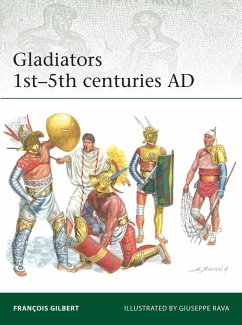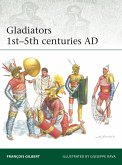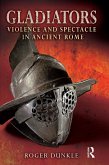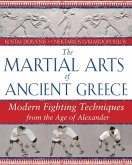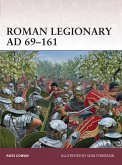This illustrated study lifts the veil on the gladiators of ancient Rome, who provided a bloody spectacle for the people of the Eternal City and its vast empire.
By the start of the Principate in 27 BC, the gladiator games were a long-standing part of the social and political life of Rome and its sprawling empire. In the wake of reforms enacted by Augustus, the games continued to be at the heart of Roman culture and politics during the 1st and 2nd centuries AD.
While prominent citizens harnessed the opportunities offered by the gladiator games to enhance their own reputations and reward their clients, the emperors soon assumed a near-monopoly on the provision of games; several even entered the arena themselves, most notoriously Commodus. In the quest for novelty, prisoners, criminals and women came to participate in this grisly 'sport'. Only after the adoption of Christianity as the state religion in AD 380 did armed combat between gladiators enter a decline, and even then beast hunts persisted into the 6th century.
Although much evidence remains, both literary and archaeological, the gladiators and their world continue to be misunderstood. Featuring full-colour reconstructions of these legendary arena fighters, this book draws upon the latest research and the author's own findings to cast new light on these formidable arena fighters and their legacy.
By the start of the Principate in 27 BC, the gladiator games were a long-standing part of the social and political life of Rome and its sprawling empire. In the wake of reforms enacted by Augustus, the games continued to be at the heart of Roman culture and politics during the 1st and 2nd centuries AD.
While prominent citizens harnessed the opportunities offered by the gladiator games to enhance their own reputations and reward their clients, the emperors soon assumed a near-monopoly on the provision of games; several even entered the arena themselves, most notoriously Commodus. In the quest for novelty, prisoners, criminals and women came to participate in this grisly 'sport'. Only after the adoption of Christianity as the state religion in AD 380 did armed combat between gladiators enter a decline, and even then beast hunts persisted into the 6th century.
Although much evidence remains, both literary and archaeological, the gladiators and their world continue to be misunderstood. Featuring full-colour reconstructions of these legendary arena fighters, this book draws upon the latest research and the author's own findings to cast new light on these formidable arena fighters and their legacy.

